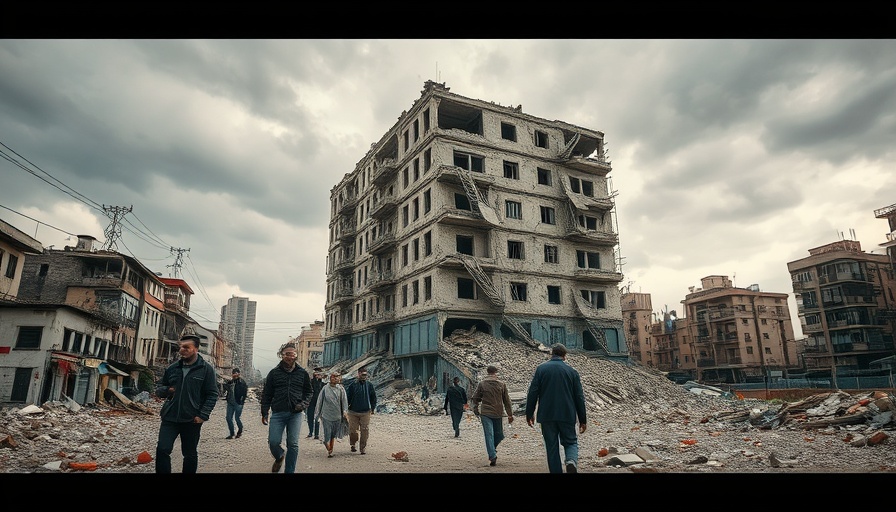
The Human Cost of Conflict in Gaza
The ongoing Israeli military operations in Gaza have resulted in a staggering humanitarian crisis, with now over 50,000 Palestinians reported dead, many of whom are women and children. The escalation of violence in Khan Younis, as detailed in the report, has included airstrikes that have ravaged communities and claimed innocent lives, raising critical questions about the morality of such military tactics in densely populated areas.
In the video titled Gaza: Israeli forces expand operations amidst escalating casualties in Khan Younis, the discussion explores the dire humanitarian consequences of ongoing military actions, prompting us to analyze its wider implications.
Separation and Displacement: The Reality for Gazans
As the blockade conditions worsen, the concept of a community being cut off from essential resources becomes painfully real. The isolation of Rafa from the rest of the Gaza Strip exemplifies how geographical and political boundaries can dictate survival. For the people of this beleaguered region, the separation not only threatens their immediate safety but also smacks of an ethnic cleansing campaign—why should civilians bear the brunt of conflicts initiated by political factions?
Historical Context: Understanding the Conflict's Roots
The history of the Israeli-Palestinian conflict has left scars that transcend generations; the current surge in violence is not an isolated event but rather a continuation of long-escalating tensions. During moments of escalating conflict, civilian casualties have risen dramatically, emphasizing the urgent need for renewed diplomatic efforts and dialogue aimed at peace. This historical lens is essential for understanding why the stakes are so high for Gazans.
Voices from the Ground: The Civilian Perspective
Personal testimonies from those affected reveal a shared sentiment: the yearning for a peaceful existence, free from the shadow of war. These voices—the citizens of Gaza—express an intense desire for stability and normalcy, hoping for a day when their children can grow up without the fear of violence. What they seek is fundamental: safety and the right to a prosperous life, devoid of displacement.
International Response: The Question of Accountability
The international community has long grappled with the complexities of the Israeli-Palestinian conflict, with growing calls for accountability concerning the humanitarian impact of military operations. Questions arise: What responsibility does the international community hold in facilitating peace? How can support for humanitarian aid align with calls for accountability? As casualties rise, so does the urgency for a coalesced response from global powers.
Key Insight: The Role of Humanitarian Aid
Humanitarian aid continues to shrink as blockades limit the flow of resources. The need for food, fuel, and medical supplies is at a critical juncture. Establishing secure channels for humanitarian aid is paramount to alleviate suffering, but this must also come alongside earnest negotiations aimed at addressing the root causes of the conflict.
Future Predictions: The Need for Lasting Solutions
Looking ahead, there is a pressing need for frameworks that address the humanitarian needs of Gaza while transitioning toward peace negotiations. Historical grievances need resolution, trade-offs must be considered, and most importantly, the voices for peace must be amplified. Without proactive efforts, the cycle of violence risks perpetuating indefinitely.
Amidst the chaos, the video titled Gaza: Israeli forces expand operations amidst escalating casualties in Khan Younis delves into the tragic realities facing the residents of Gaza, prompting deeper reflection on the implications of this ongoing situation and highlighting the urgent need for comprehensive approaches to address civilian safety and conflict resolution.
The international community plays a crucial role in shaping responses to the Gaza crisis. As professionals engaged with African current events, it is imperative to advocate for transparency and accountability in governance. Engaging in discussions about solutions and potentials for humanitarian diplomacy could encourage both public and private sectors to invest resources in stabilizing this beleaguered region.
 Add Row
Add Row  Add
Add 




Write A Comment